THE RAY WU PRIZE
2017 Ray Wu Prize Winner
2017 Awardees at Ceremony
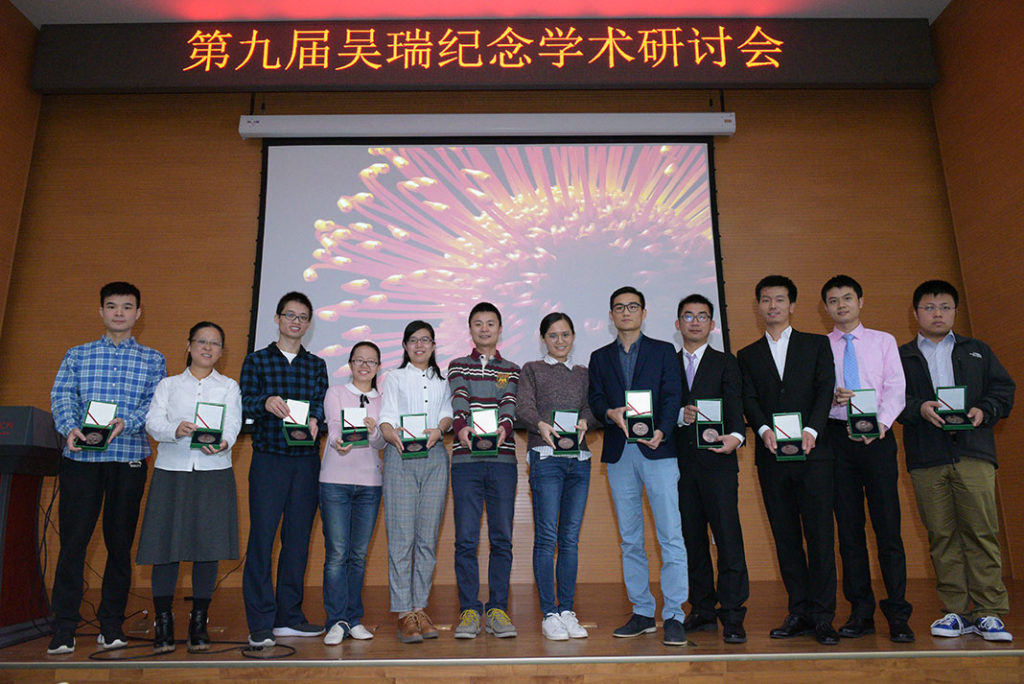
Chenfei Wang
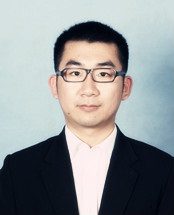 Background: Mr.Wang received his BS from Tongji University in 2012, and entered the Ph.D. program at lab of Dr. Zhang Yong at Tongji University in the same year. He is interested in the design of statistical and computational algorithms on high-throughput biological data to study the epigenetic priming effects on stem cell differentiation and embryo development. The first work Chenfei carried out was to identify key factors that responsible for developmental arrest of somatic cell nuclear transferred (SCNT) embryos, with his bioinformatics analysis, he and his colleague had successfully identified two genes accounts for the arrest of cloned embryos. The second work Chenfei was responsible for was to analyze the dynamics of H3K4me3 and H3K27me3 modification during mouse early embryo development. They found roles of broad H3K4me3 domains during early embryo development.
Background: Mr.Wang received his BS from Tongji University in 2012, and entered the Ph.D. program at lab of Dr. Zhang Yong at Tongji University in the same year. He is interested in the design of statistical and computational algorithms on high-throughput biological data to study the epigenetic priming effects on stem cell differentiation and embryo development. The first work Chenfei carried out was to identify key factors that responsible for developmental arrest of somatic cell nuclear transferred (SCNT) embryos, with his bioinformatics analysis, he and his colleague had successfully identified two genes accounts for the arrest of cloned embryos. The second work Chenfei was responsible for was to analyze the dynamics of H3K4me3 and H3K27me3 modification during mouse early embryo development. They found roles of broad H3K4me3 domains during early embryo development.
Citation: His specialty is bioinformatics. In collaboration with a stem cell biologist,Gao Shaorong, he has made major contributions in understanding the epigenetic regulation during embryogenesis. He also has a good grasp of the biology behind his research. He thinks independently and innovatively. He is intelligent and sharp. He plans to continue this line of investigation with emphasis on aging after postdoctoral training with top scientists in the US.
This prize is sponsored by Taikang Community (Beijing) Investment Co., Ltd.
Jingyi Wu
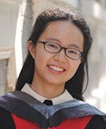 Background: Ms. Wu earned her bachelor degree from China Agricultural University in 2012, and is conducting her Ph.D. research in the laboratory of Dr. Xie Wei in the Tsinghua University. Her thesis project is to study chromatin dynamics in early mammalian development. Using ATAC-seq and CARM, She and her colleague have systematically revealed how open chromatin reprograms during mammalian embryogenesis for the first time and identified the key transcription factors regulating this process.
Background: Ms. Wu earned her bachelor degree from China Agricultural University in 2012, and is conducting her Ph.D. research in the laboratory of Dr. Xie Wei in the Tsinghua University. Her thesis project is to study chromatin dynamics in early mammalian development. Using ATAC-seq and CARM, She and her colleague have systematically revealed how open chromatin reprograms during mammalian embryogenesis for the first time and identified the key transcription factors regulating this process.
Citation: She has done significant work on the epigenetic landscape of early embryos and made a major technical advancement though the idea belongs to her mentor. She is technically highly competent and knows her research very well. She is confident and able to defend herself when challenged. Her communication skill is strong.
This prize is sponsored by Taikang Community (Beijing) Investment Co., Ltd.
Yiding Li
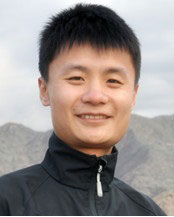 Background: Mr. Li received his Bachelor from Hunan Normal University in 2009, and entered the Ph.D program in the laboratory of Dr. Zhang Xiaohui in the Institute of Neuoscience, CAS in 2011. Yiding used optogenetic tools and engineering to develop a random-access acousto-optic deflector based laser stimulation system. Then, by using this newly advanced system, he observed a phenomenon that the entorhinal cortex selectively innervating hippocampal CA1 neurons. By combining different cutting edge approaches, he revealed the heterogeneity of CA1 pyramidal neurons, which challenged previous ideas of homogeneity. Last, he linked those heterogeneous projections in the in vitro neuronal circuit with olfactory associative learning and spatial navigation in vivo using optetrode recording and optogenetic manipulation.
Background: Mr. Li received his Bachelor from Hunan Normal University in 2009, and entered the Ph.D program in the laboratory of Dr. Zhang Xiaohui in the Institute of Neuoscience, CAS in 2011. Yiding used optogenetic tools and engineering to develop a random-access acousto-optic deflector based laser stimulation system. Then, by using this newly advanced system, he observed a phenomenon that the entorhinal cortex selectively innervating hippocampal CA1 neurons. By combining different cutting edge approaches, he revealed the heterogeneity of CA1 pyramidal neurons, which challenged previous ideas of homogeneity. Last, he linked those heterogeneous projections in the in vitro neuronal circuit with olfactory associative learning and spatial navigation in vivo using optetrode recording and optogenetic manipulation.
Citation: He studies neuronal circuitry and did some tour de force and cutting-edge research using very challenging technologies. He seems very (over) focused in his research and very passionate about doing science. He thinks independently and has a broad knowledge base. He has thought through his career plan and is highly motivated and enthusiastic about a career in science. His English is good.
This prize is sponsored by Taikang Community (Beijing) Investment Co., Ltd.
Yi Wu
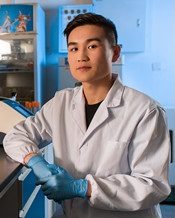 Background: Mr. Wu earned his bachelor degree from Dalian University of Technology in 2012, and is conducting his PhD research in the laboratory of Dr. Yingjin Yuan in Tianjin University. His research focuses on synthetic biology. He completed the chemically synthesis of synX (~707 kb) in a very efficient way compared with other chromosome builders. He also developed a high-throughput mapping strategy called pooled PCRTag mapping (PoPM) to identify unexpected “bugs” during chromosome assembly. His ongoing innovative study in SCRaMbLE (synthetic chromosome rearrangement and modification by loxP mediated evolution) system explored the application of this technology.
Background: Mr. Wu earned his bachelor degree from Dalian University of Technology in 2012, and is conducting his PhD research in the laboratory of Dr. Yingjin Yuan in Tianjin University. His research focuses on synthetic biology. He completed the chemically synthesis of synX (~707 kb) in a very efficient way compared with other chromosome builders. He also developed a high-throughput mapping strategy called pooled PCRTag mapping (PoPM) to identify unexpected “bugs” during chromosome assembly. His ongoing innovative study in SCRaMbLE (synthetic chromosome rearrangement and modification by loxP mediated evolution) system explored the application of this technology.
Citation: He is involved in a large international project of synthetic chromosomes in yeast, designed by Jeff Boeke at NYU. He was specifically responsible for leading the execution of the experiments for manipulating chromosome X. He was able to argue for the significance of the project and has an open mind. There was a mature and productive discussion on the issues related to this large project. He was thoughtful, independent and highly motivated. He expressed himself well in English.
This prize is sponsored by Taikang Community (Beijing) Investment Co., Ltd.
Xinlu Ding
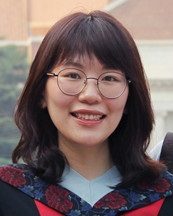 Background: Ms. Ding obtained her bachelor degree from Tongji University in 2012, and is conducting her Ph.D. research in the laboratory of Dr. Guan Jisong in Tsinghua University. Her research focuses on studying how the epigenetic regulation contributes to the process of learning and memory. She and her colleague found that after learning, there is a Suv39h1-mediated increase of Nrxn1 SS4 inclusion within the memory circuit to constrain the synaptic plasticity and connection specificity, therefore protecting the integrity of old memory circuits from the distraction of new learning events. Epigenetic modifications may serve as molecular tags within those memory related neurons to actively regulate memory preservation during the post learning period.
Background: Ms. Ding obtained her bachelor degree from Tongji University in 2012, and is conducting her Ph.D. research in the laboratory of Dr. Guan Jisong in Tsinghua University. Her research focuses on studying how the epigenetic regulation contributes to the process of learning and memory. She and her colleague found that after learning, there is a Suv39h1-mediated increase of Nrxn1 SS4 inclusion within the memory circuit to constrain the synaptic plasticity and connection specificity, therefore protecting the integrity of old memory circuits from the distraction of new learning events. Epigenetic modifications may serve as molecular tags within those memory related neurons to actively regulate memory preservation during the post learning period.
Citation: She studies Epigenetic mechanisms regulating the formation, consolidation and reconsolidation of memories and published a paper in Nature Neuroscience. She is confident and articulated well the significance of her work. She knows her field well.
This prize is sponsored by Taikang Community (Beijing) Investment Co., Ltd.
Kai Li
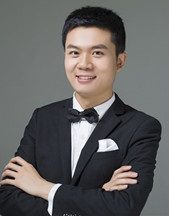 Background: Mr. Li was awarded his bachelor degree by Northwest Normal University in 2010, and entered the Ph.D. program in the Institute of Neuoscience , CAS in 2012. His advisor is Dr. Cai Shiqing. Kai’s project mainly focuses on the mechanism underlying structural and functional formation of ion channels during their biogenesis. He had finished two projects during his PhD period. 1) deciphered the molecular mechanism of ion channel subunit assembly in the endoplasmic reticulum (ER). 2) established an in vivo screening system and identified small compounds that can correct the defective biogenesis of disease-related mutant ion channels.
Background: Mr. Li was awarded his bachelor degree by Northwest Normal University in 2010, and entered the Ph.D. program in the Institute of Neuoscience , CAS in 2012. His advisor is Dr. Cai Shiqing. Kai’s project mainly focuses on the mechanism underlying structural and functional formation of ion channels during their biogenesis. He had finished two projects during his PhD period. 1) deciphered the molecular mechanism of ion channel subunit assembly in the endoplasmic reticulum (ER). 2) established an in vivo screening system and identified small compounds that can correct the defective biogenesis of disease-related mutant ion channels.
Citation: He studies the biogenesis of voltage-gated K+ channel by using genetic and biochemical approaches. He made novel findings by identifying modulatory proteins that help the assembly of the channel in the ER. He was able to clearly explain his work and its biological significance in relation to diseases. He also has a broad and in-depth knowledge and thinks independently. He appears very smart, curious and confident. He seems to have a great potential.
This prize is sponsored by Taikang Community (Beijing) Investment Co., Ltd.
Peng Li
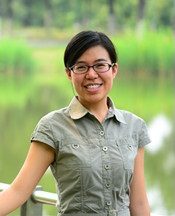 Background: Ms. Li received her bachelor degree from Nankai University in 2011, and is conducting her Ph.D. research in the laboratory of Dr. Shao, Feng in the National Institute of Biological Science (NIBS). She mainly studied the molecular mechanisms involved in interferon-inducible guanylate-binding proteins (GBPs), which are emerging players in cell-autonomous defense against virus, parasites and bacteria. Peng used a transposon screen and identified IpaH9.8 that mediated GBP1 degradation dependent upon its ubiquitin ligase activity. Step by step, she confirmed that GBPs being the physiological targets of IpaH9.8.
Background: Ms. Li received her bachelor degree from Nankai University in 2011, and is conducting her Ph.D. research in the laboratory of Dr. Shao, Feng in the National Institute of Biological Science (NIBS). She mainly studied the molecular mechanisms involved in interferon-inducible guanylate-binding proteins (GBPs), which are emerging players in cell-autonomous defense against virus, parasites and bacteria. Peng used a transposon screen and identified IpaH9.8 that mediated GBP1 degradation dependent upon its ubiquitin ligase activity. Step by step, she confirmed that GBPs being the physiological targets of IpaH9.8.
Citation: She was able to logically and clearly explain her unpublished work on how a bacterial E3 ubiquitin ligase helps evade host defense by promoting the degradation of a host factor capable to attaching this strain of bacteria, S. flexneri. She has a good grasp of her field and innate immunity. She could state the significance of her work. She appeared to be sharp while answering demanding questions. She has some knowledge about immunology though her general knowledge can be broadened. She has a clear career plan of obtaining further training in immunology.
This prize is sponsored by Taikang Community (Beijing) Investment Co., Ltd.
Peiwen Lu
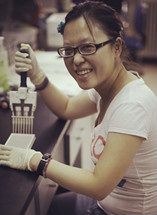 Background: Ms. Lu received her BS from National Taiwan University in 2008, and entered the PhD program in Tsinghua University, where she studies under Dr. Qi Hai in 2009. In her Ph.D. training, she focused on solving the puzzling about the mechanism underlying germinal centers (GC) territory formation, specifically in follicular helper T (TFH) cells recruitment in GC niche. Her work identified the repulsive neuron guidance molecule, Ephrin B1 (EFNB1), is GC-specific and abundantly expressed by GC B cell on the cell membrane. Further, she found EFNB1 forward signaling to TFH cells through EphB6, the receptor tyrosine kinase for EFNB1, inhibits T-B adhesion and retention of TFH cells in GCs. EFNB1 is not only as a negative regulator for TFH cells recruitment but also a positive mediator for IL-21 production by TFH cells through interacting with its receptor, EphB4, to facilitate plasma cell formation in T-dependent immune response.
Background: Ms. Lu received her BS from National Taiwan University in 2008, and entered the PhD program in Tsinghua University, where she studies under Dr. Qi Hai in 2009. In her Ph.D. training, she focused on solving the puzzling about the mechanism underlying germinal centers (GC) territory formation, specifically in follicular helper T (TFH) cells recruitment in GC niche. Her work identified the repulsive neuron guidance molecule, Ephrin B1 (EFNB1), is GC-specific and abundantly expressed by GC B cell on the cell membrane. Further, she found EFNB1 forward signaling to TFH cells through EphB6, the receptor tyrosine kinase for EFNB1, inhibits T-B adhesion and retention of TFH cells in GCs. EFNB1 is not only as a negative regulator for TFH cells recruitment but also a positive mediator for IL-21 production by TFH cells through interacting with its receptor, EphB4, to facilitate plasma cell formation in T-dependent immune response.
Citation: She is very dedicated and passionate about her work on the crosstalk between germinal center B and T cells. She has made a significant discovery using technically challenging approaches and published, as a sole first author, a Research Article in Science, which is accompanied with a commentary. Through this work which took a long time, she also demonstrated her perseverance and determination, which are rarely found among her peers. She is very knowledgeable about her field but did not demonstrate a broad interest in other areas. Her English is excellent.
This prize is sponsored by Taikang Community (Beijing) Investment Co., Ltd.
Jianping Wu
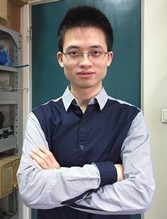 Background: Mr. Wu received his bachelor degree from Tsinghua University in 2012, and is conducting his Ph.D. study in the field of structural biology under the direction of Dr. Yan Ning in Tsinghua University. His representative work is the determination of the first structure of a eukayotic voltage-gated calcium channel. He also has made a contribution in the structure investigation of ryanodine receptor (RyR), which together with his work on Cav1.1, has improved our understanding in the muscle excitation-contraction coupling (EC coupling).
Background: Mr. Wu received his bachelor degree from Tsinghua University in 2012, and is conducting his Ph.D. study in the field of structural biology under the direction of Dr. Yan Ning in Tsinghua University. His representative work is the determination of the first structure of a eukayotic voltage-gated calcium channel. He also has made a contribution in the structure investigation of ryanodine receptor (RyR), which together with his work on Cav1.1, has improved our understanding in the muscle excitation-contraction coupling (EC coupling).
Citation: He is a very capable structural biologist, specializing in Cryo-EM. Because of his expertise at the early stage of this technology and outstanding capability, he has been involved in many projects and thus very productive, with 21 publications (6 co-first author in CNS). He demonstrated independent thinking and recognized the significance of his work. He appears innovative and smart. He has a broad knowledge and skill set. He is being considered as a faculty member in a US university.
This prize is sponsored by Taikang Community (Beijing) Investment Co., Ltd.
Xu Xiao
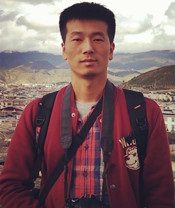 Background: Mr. Xiao completed his bachelor degree at Northwest University in 2011, and entered the Ph.D. program in Institute of Biochemistry and Cell Biology, CAS in the same year. His advisor is Dr. Song Baoliang. Xu Xiao’s PhD thesis work concerns how the Hedgehog (Hh) signal transducer Smoothened (Smo), a seven-trans membrane protein related to G protein coupled receptor, is activated in response to Hh ligand. Xu’s work is summarized as follows:1)It identifies that SMO is a new cholesterol modified protein; 2)It demonstrates that Ptch1 and Hh control SMO activity via regulating its cholesterylation;3)It shows that cholesterylation of SMO plays a pivotal role in Hh signaling and embryonic development;4)It suggests a potential therapeutic strategy to treat Hh pathway-related cancers by targeting SMO cholesterylation.
Background: Mr. Xiao completed his bachelor degree at Northwest University in 2011, and entered the Ph.D. program in Institute of Biochemistry and Cell Biology, CAS in the same year. His advisor is Dr. Song Baoliang. Xu Xiao’s PhD thesis work concerns how the Hedgehog (Hh) signal transducer Smoothened (Smo), a seven-trans membrane protein related to G protein coupled receptor, is activated in response to Hh ligand. Xu’s work is summarized as follows:1)It identifies that SMO is a new cholesterol modified protein; 2)It demonstrates that Ptch1 and Hh control SMO activity via regulating its cholesterylation;3)It shows that cholesterylation of SMO plays a pivotal role in Hh signaling and embryonic development;4)It suggests a potential therapeutic strategy to treat Hh pathway-related cancers by targeting SMO cholesterylation.
Citation: He studies the cholesterol modification of key regulatory proteins. He found that cholesterol attachment to a D residue is critical for Smoothened (SMO) to transport to the cell surface and showed that this is essential for SMO function. He showed independent and in-depth thinking, and a broad knowledge base. He is smart and motivated. His presentation is very clear and has a clear future plan.
This prize is sponsored by Taikang Community (Beijing) Investment Co., Ltd.
Baibing Zhang
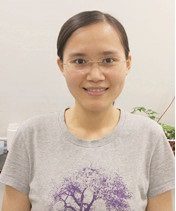 Background: Ms. Zhang finished her bachelor degree in Sun Yat-sen University in 2010. She entered the PhD program in Institute of Neuroscience, CAS, where she studies under Dr. Du Jiulin in 2012. Her PhD thesis research was focused on the neural circuit mechanisms underlying behaviors. She and her colleagues (1) established a CRISPR/Cas9-based and intron targeting-mediated efficient knockin strategy for zebrafish, (2) found that the neural circuit functioned through dopaminergic neurons and downstream glycinergic interneurons, (3) identified the retinal ganglion cells-eminentia thalamus-dorsal left habenula pathway for mediating this light-dark preference.
Background: Ms. Zhang finished her bachelor degree in Sun Yat-sen University in 2010. She entered the PhD program in Institute of Neuroscience, CAS, where she studies under Dr. Du Jiulin in 2012. Her PhD thesis research was focused on the neural circuit mechanisms underlying behaviors. She and her colleagues (1) established a CRISPR/Cas9-based and intron targeting-mediated efficient knockin strategy for zebrafish, (2) found that the neural circuit functioned through dopaminergic neurons and downstream glycinergic interneurons, (3) identified the retinal ganglion cells-eminentia thalamus-dorsal left habenula pathway for mediating this light-dark preference.
Citation: She studies neural circuitry in zebrafish with Du Jiulin. She developed an efficient CRISPR-Cas9 approach to generated reporter strains in zebrafish and used them in a number of interesting studies. She is passionate and articulate. She is also ambitious. She appeared thoughtful, independent and highly motivated. She recognizes the significance of her work and has a broad knowledge base. She showed strong interest and curiosity towards science. She is very smart and energetic. Her communication skills are very good. She plans to learn cutting-edge imaging techniques and used them in understanding the brain circuitry in live fish.
This prize is sponsored by Taikang Community (Beijing) Investment Co., Ltd.
Qingfei Zheng
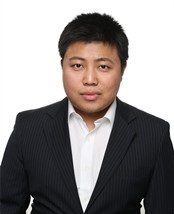 Background: Mr. Zheng got his bachelor degree from Tsinghua University in 2012, and is conducting his Ph.D. research in the laboratory of Dr. Liu Wen in the Shanghai Institute of Organic Chemistry, CAS. His thesis work mainly focused on the biosynthesis of macrocyclic antibiotics. Qingfei developed 1) a universal chemo-enzymatic synthetic route for producing QA analogs, and then utilized these analogs to probe the macrocyclization of TSR side ring and to generate new TSR derivatives. 2) discovered a novel dual mode of action of TSRs against intracellular pathogens, and proved that TSR is the first antibiotic found to be capable of intuitively acting on both the bacterial pathogens and infected cells. 3) the introduction of a fluorine atom onto QA moiety perturbed the PTMs of TSR.
Background: Mr. Zheng got his bachelor degree from Tsinghua University in 2012, and is conducting his Ph.D. research in the laboratory of Dr. Liu Wen in the Shanghai Institute of Organic Chemistry, CAS. His thesis work mainly focused on the biosynthesis of macrocyclic antibiotics. Qingfei developed 1) a universal chemo-enzymatic synthetic route for producing QA analogs, and then utilized these analogs to probe the macrocyclization of TSR side ring and to generate new TSR derivatives. 2) discovered a novel dual mode of action of TSRs against intracellular pathogens, and proved that TSR is the first antibiotic found to be capable of intuitively acting on both the bacterial pathogens and infected cells. 3) the introduction of a fluorine atom onto QA moiety perturbed the PTMs of TSR.
Citation: He is impressive. He demonstrated that he has taken ownership of his research projects. As a synthetic chemist, he uses chemical approaches to modify bacterial proteins to generate more potent antibiotics. He is knowledgeable of his field and has a broad interest in small molecule-mediated modification of regulatory proteins such as histones. He is very thoughtful and in depth. He has a broad knowledge base. He is confident and passionate about his work. He showed independent and innovative thinking. He has strong presentation skills.
This prize is sponsored by Taikang Community (Beijing) Investment Co., Ltd.
Chenxu Zhu
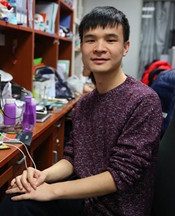 Background: Mr. Zhu earned his bachelor degree from Wuhan University in 2011, and is conducting his PhD research in the laboratory of Dr. Yi Chengqi at Peking University. His research interest mainly focused on the molecular mechanisms of DNA-modification enzymes and the development of detection methods for novel DNA modifications. 1) He and his colleague integrated nucleic acid chemical biology, structural biology, biochemistry to study the molecular mechanisms of DNA repair proteins. 2) He developed novel single-cell sequencing method to detect DNA epigenetic modifications and applied this strategy to study the distribution and function of 5-formylcytosine during mammal early embryo development.
Background: Mr. Zhu earned his bachelor degree from Wuhan University in 2011, and is conducting his PhD research in the laboratory of Dr. Yi Chengqi at Peking University. His research interest mainly focused on the molecular mechanisms of DNA-modification enzymes and the development of detection methods for novel DNA modifications. 1) He and his colleague integrated nucleic acid chemical biology, structural biology, biochemistry to study the molecular mechanisms of DNA repair proteins. 2) He developed novel single-cell sequencing method to detect DNA epigenetic modifications and applied this strategy to study the distribution and function of 5-formylcytosine during mammal early embryo development.
Citation: He has a strong chemistry background and is interested in methodology involved in analyzing DNA modification. He knows what he is doing and has good presentation skills. His knowledge and skill set are strong. He answered questions precisely and appeared very sharp. He also has a broad interest in different areas of science.
This prize is sponsored by Taikang Community (Beijing) Investment Co., Ltd.
RWMF members at the award ceremony for the 2017 Ray Wu Prize
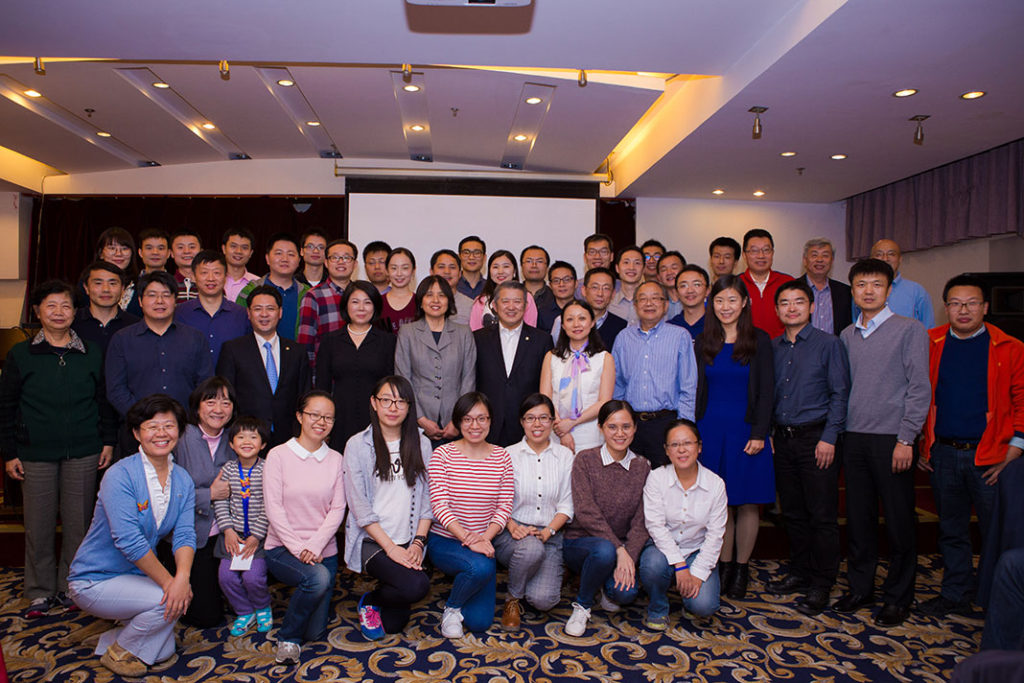
rown Bio is a sponsor of the Ray Wu Symposium.
